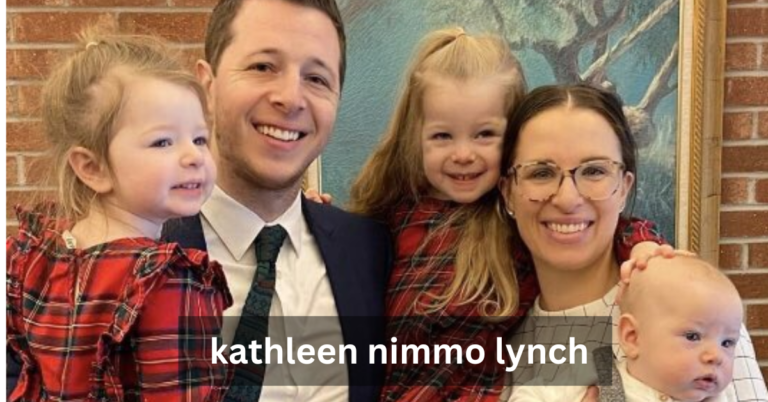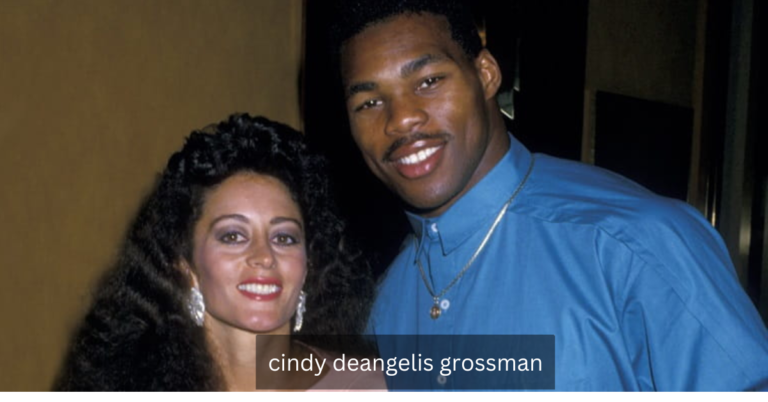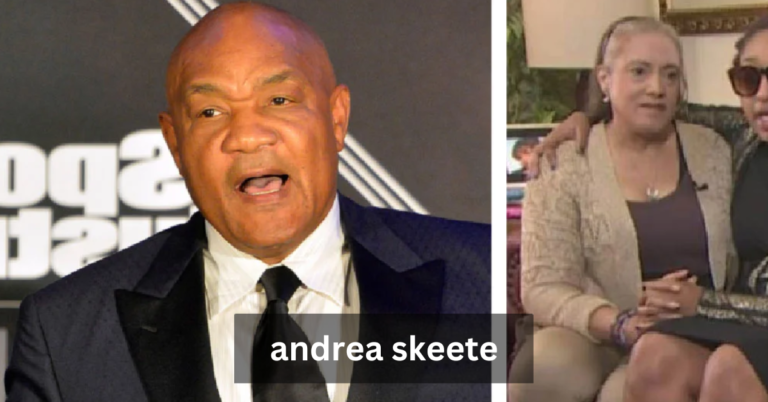Adeena Mendel: Championing Mental Health & Gender Equality
The Resilient Minds Project is an initiative created by Adeena Mendel to provide mental health resources to women and non-binary individuals in underserved communities. It focuses on therapy programs, peer support, and workshops designed to build emotional resilience and support mental well-being.
A social activist and mental health champion, Mendel’s work intertwines emotional resilience, community empowerment, and social justice. She is renowned for developing initiatives that address both gender-based mental health challenges and systemic inequality, with a strong focus on empowering women, non-binary individuals, and underserved groups. Her approach is rooted in compassion, collaboration, and systemic change, leading her to reshape how communities tackle mental health and gender issues globally.
Her impact is profound, with her initiatives sparking conversations about the importance of mental health support, particularly for marginalized communities. Mendel’s story is one of resilience, perseverance, and the tireless pursuit of creating safer, more inclusive spaces for everyone, especially for those who are often overlooked in mainstream discussions of mental health.
In a world increasingly aware of the mental health crisis, Adeena Mendel’s work stands out for its focus on holistic solutions that connect the dots between mental health, gender equality, and community development. Her advocacy is crucial, especially as mental health stigma continues to affect people worldwide, particularly in underserved communities. Mendel’s approach fosters healing, awareness, and systemic change, providing mental health resources where they are most needed.
Mendel’s initiatives are also timely, as global conversations about gender equality and mental health have reached new heights. The United Nations (UN) and organizations like the World Health Organization (WHO) have stressed the need for mental health support as a global priority. Adeena Mendel’s pioneering work in this arena serves as a model for what true societal change can look like when these issues are addressed with empathy, insight, and urgency.
Profile Summary
| Name | Adeena Mendel |
| Profession | Mental Health Advocate, Gender Equality Activist, Social Entrepreneur |
| Key Initiatives | The Resilient Minds Project, Community Circles for Collective Healing, Advocacy for Policy Reform |
| Focus Areas | Mental health advocacy, Gender equality activism, Community empowerment, Policy reform |
| Target Group | Marginalized communities, Women, Non-binary individuals, Underserved populations |
| Major Achievements | Bridging the gap between mental health and gender equality, Reducing stigma through community-based initiatives |
| Philosophy | Holistic approach to mental health and social change, Empowerment through mental health support |
| Partnerships | Collaborations with global organizations such as WHO, UN, NAMI, Mental Health America, and other NGOs |
| Awards/Recognition | Recognized as a leading voice in mental health and gender equality advocacy (Specific awards can be added) |
| Key Programs | – The Resilient Minds Project- Community Circles for Collective Healing- Policy Reform Advocacy |
| Geographical Impact | Global impact, with a special focus on underserved communities in North America and international outreach |
| Current Goals | Expand mental health access, Strengthen gender equality policies, Continue to grow community-based healing initiatives |
| Social Media/Contact Info | [Include links to social media profiles or contact for collaborations/partnerships if available] |
The Early Life and Influences of Adeena Mendel
Family Background and Early Inspiration
Born into a family that valued service, Adeena Mendel was surrounded by values of compassion and community support. Her upbringing laid the foundation for her future work in mental health and social activism. From a young age, Mendel was taught the importance of listening, understanding, and helping those in need. These early lessons, combined with her strong academic background, shaped her understanding of the intersections between mental health, gender, and societal roles.
Growing up, Mendel observed how the challenges of marginalized individuals, particularly women and non-binary people, often went unnoticed in mainstream society. These experiences fueled her desire to create a world where mental health resources were more accessible and where individuals could feel empowered to speak out about their struggles without fear of judgment.
Personal Experiences Shaping Her Mental Health Advocacy
Mendel’s personal encounters with mental health issues, along with her recognition of the stigma surrounding them, further propelled her into this field. She found that many people, especially those from marginalized communities, faced not only the struggles of mental health but also the added burden of social discrimination. These factors played a pivotal role in her understanding of the deep connection between mental health and gender equality.
This personal experience helped Mendel realize the urgency of integrating mental health education and advocacy into broader social activism. She understood that mental health stigma, especially in underserved communities, was a key barrier to emotional well-being, and that creating spaces for individuals to openly discuss their struggles was essential for breaking down those walls.
The Intersection of Mental Health and Gender Equality
Why Mental Health and Gender Issues Are Inextricably Linked
The intersection of mental health and gender equality is a central theme in Adeena Mendel’s work. Gender-based mental health challenges, particularly those faced by women and non-binary individuals, often include experiences of violence, discrimination, and unequal access to resources. This intersectionality means that mental health support for these groups cannot be separated from the broader social issues of gender inequality.
Mendel’s work highlights the fact that gender discrimination can exacerbate mental health challenges, creating a cycle of marginalization that leaves many without the support they need. By addressing both mental health and gender equality together, Mendel’s initiatives offer a more comprehensive approach that ensures individuals are empowered to take control of their well-being while also challenging the systemic issues that contribute to their struggles.
The Challenges Facing Marginalized Communities
Marginalized communities often face compounded mental health challenges due to factors such as socioeconomic disparity, lack of access to quality healthcare, and the stigma surrounding mental health in these groups. For women, non-binary individuals, and other vulnerable populations, the combination of these challenges often leads to a greater need for mental health support and advocacy.
Mendel’s focus on these communities has been instrumental in highlighting the disparities and working toward solutions. Initiatives like the Resilient Minds Project and Community Circles for Collective Healing provide critical mental health resources for those who need it most, helping to bridge the gap between marginalized communities and the mental health resources that can enable healing.
Key Initiatives by Adeena Mendel
The Resilient Minds Project
One of Adeena Mendel’s most significant contributions is the Resilient Minds Project, which focuses on providing mental health resources to women and non-binary individuals in underserved communities. This initiative is rooted in the belief that mental health and gender equality must be addressed together to create lasting change.
The Resilient Minds Project offers therapy programs, peer support networks, and workshops designed to build emotional resilience. Through this initiative, Mendel has reached thousands of individuals, offering tools for coping with stress, anxiety, and trauma. The program emphasizes the importance of self-care, psychological resilience, and emotional support in the face of societal and gender-based challenges.
Community Circles for Collective Healing
In addition to the Resilient Minds Project, Mendel introduced Community Circles for Collective Healing, an innovative initiative that encourages community-based mental health support. These circles bring individuals together to share their stories, learn coping mechanisms, and offer emotional support to one another. The goal of these circles is to create a sense of belonging and reduce the stigma around mental health, empowering individuals to seek help without fear of judgment.
Through these healing circles, Mendel has fostered stronger community bonds and a greater sense of shared responsibility for mental well-being. This grassroots approach to mental health care has had a transformative impact on local communities, showing that collective healing is not only possible but essential for creating sustainable change.
Advocacy for Policy Reform
Beyond direct community work, Adeena Mendel has been a fierce advocate for policy reform aimed at prioritizing mental health and gender equality. She works closely with governmental and non-governmental organizations to push for policies that ensure better access to mental health care, particularly for marginalized groups.
Her advocacy efforts have included working with groups like the National Alliance on Mental Illness (NAMI) and Mental Health America to create policy proposals that integrate mental health support into the broader health system. Mendel’s efforts to push for mental health funding and legislation that addresses gender inequality have been pivotal in ensuring that these issues receive the attention they deserve at the policy level.
A New Vision for Community Empowerment
The Holistic Approach to Mental Health and Social Change
At the heart of Adeena Mendel’s philosophy is the idea that mental health should be seen as a foundational element of social well-being. Her holistic approach focuses on tackling the root causes of mental health issues, such as economic disparity, lack of education, and systemic discrimination. By addressing these factors, Mendel believes we can create stronger, more resilient communities where individuals are empowered to take control of their own mental health.
This approach also includes emphasizing the importance of community-based solutions. Mendel’s belief is that when individuals have the tools and support to improve their own well-being, they can pass that knowledge on, creating a ripple effect that strengthens the entire community.
Empowering Individuals to Create Positive Change
Empowerment is at the core of Mendel’s work. By providing individuals with the mental health resources they need, Mendel ensures that they can take charge of their own healing and contribute to creating a more inclusive society. Her initiatives emphasize personal agency, teaching individuals how to advocate for themselves and others, thereby fostering a culture of empowerment within communities.
Through her efforts, Mendel has inspired countless people to become mental health advocates in their own right, contributing to the broader movement for gender equality and mental health awareness.
Adeena Mendel’s Global Impact
International Reach of Her Work
While her work is deeply rooted in local communities, Adeena Mendel’s initiatives have garnered international attention. Through partnerships with organizations like the United Nations (UN) and the World Health Organization (WHO), Mendel has expanded her efforts to countries around the world, advocating for mental health and gender equality on a global scale.
Mendel’s work has crossed borders, making a profound impact in countries where mental health care is often underfunded or stigmatized. By raising awareness of the importance of mental health and gender equality, Mendel is helping to create a more globally connected effort to address these issues.
Partnerships with Global Organizations
Mendel has also partnered with various NGOs and women’s health organizations to bring her initiatives to a broader audience. These partnerships have been instrumental in scaling her programs and ensuring that they reach the communities that need them most. By working alongside established global organizations, Mendel has been able to influence policy, raise awareness, and implement lasting change in communities around the world.
Lessons from Adeena Mendel’s Story
Why Her Story Resonates with Activists and Communities Worldwide
Adeena Mendel’s story resonates with activists and communities worldwide because it speaks to the power of resilience and the importance of community-based solutions to societal problems. Her work shows that when we come together to support one another, we can break down barriers, challenge systemic inequalities, and create lasting change.
Her approach to mental health and gender equality has set a new standard for how activists can approach social justice work, emphasizing empathy, collaboration, and grassroots action.
How Her Approach Can Transform Communities
Mendel’s approach has the potential to transform communities by breaking down stigma and building a culture of healing. By combining mental health resources with gender equality activism, Mendel has created a model for addressing some of the most pressing challenges of our time. This holistic, community-based approach has shown that true empowerment comes from within the community and that lasting change occurs when individuals are given the tools, support, and opportunity to take charge of their own lives.
Her approach focuses on creating sustainable impact through collective healing and empowerment, ensuring that marginalized communities not only receive mental health resources but also have the strength to advocate for themselves and each other. By investing in individuals’ well-being and providing them with a platform to share their stories, Mendel’s methods offer a transformative path for those who have long been underserved and silenced.
Practical Steps for Advocating Mental Health and Gender Equality
How You Can Contribute to the Cause
If you’re inspired by Adeena Mendel’s mission and want to get involved in advocating for mental health and gender equality, there are several ways to contribute. One of the most effective ways to make a difference is by supporting organizations that align with these causes, such as Mental Health America or Women’s Health organizations that advocate for mental health access, awareness, and gender equality.
You can also take personal action by educating yourself and others about the intersectionality of mental health and gender. Starting conversations in your community about mental health stigma and the importance of gender equality can help raise awareness and break down barriers to support.
In addition, you can volunteer your time or donate to initiatives like The Resilient Minds Project or Community Circles for Collective Healing, which directly address mental health challenges in underserved communities. Every bit of help counts, whether it’s spreading awareness, raising funds, or offering your skills and services to support these vital programs.
Tips for Starting Your Own Community-Based Programs
For those looking to create their own community-based mental health initiatives, it’s important to start by understanding the unique needs of the population you wish to serve. Connect with local groups, gather input from those who are directly affected, and listen to their stories to better understand the specific barriers they face.
Next, build a network of like-minded individuals who are passionate about mental health and gender equality. Partnerships with local organizations, schools, health professionals, and even government agencies can help amplify your efforts. Offering workshops, peer support groups, and resource sharing can provide immediate support while laying the groundwork for longer-term initiatives.
Most importantly, remember to create a safe, welcoming space where participants can feel heard and validated. This creates an environment conducive to healing, empowerment, and resilience.
Challenges and Future Directions in Mental Health Advocacy
Current Obstacles in Mental Health and Gender Equality Work
While tremendous progress has been made, there are still many obstacles in the fight for mental health access and gender equality. Stigma surrounding mental health remains a significant barrier, particularly in underserved communities, where seeking help may still be seen as a sign of weakness or failure. This stigma often prevents individuals from accessing the resources they need to heal, which prolongs cycles of trauma and isolation.
Additionally, gender-based violence and discrimination continue to affect many individuals, exacerbating mental health challenges. While Mendel’s initiatives have provided significant relief, the broader societal and structural changes needed to fully address these issues are still far from realized. Gender inequality in the workplace, healthcare, and social structures continues to limit opportunities for women and non-binary individuals, hindering their mental well-being and access to necessary support.
Adeena Mendel’s Future Vision and Goals
Looking ahead, Adeena Mendel envisions a world where mental health is prioritized at every level of society, particularly for marginalized communities. She continues to advocate for stronger policies that integrate mental health services into all areas of public health, from schools to workplaces to community centers. Her goal is to see mental health become a part of the broader social conversation, with resources, education, and support available to everyone.
Mendel also aims to expand her reach, working with more international partners to address mental health and gender inequality on a global scale. Through her continued advocacy, she hopes to create systemic change that ensures mental health care is accessible, affordable, and destigmatized, particularly for those who have long been left out of the conversation.
Conclusion
Adeena Mendel’s legacy will be measured not only by the immediate impact of her initiatives but by the lasting ripple effect they create in communities around the world. Her work has inspired a movement of change that transcends borders, cultures, and socioeconomic statuses, empowering individuals to take control of their mental health while advocating for broader societal shifts. The ripple effect of her efforts is seen in the empowered voices of those who once felt voiceless and in the communities that are slowly but surely changing for the better.
Her commitment to breaking down mental health stigma, advocating for gender equality, and fostering collective healing ensures that her vision will continue to grow and influence future generations of activists, leaders, and changemakers.
As we reflect on Adeena Mendel’s remarkable contributions to mental health advocacy and gender equality, we are reminded that the work is far from over. We each have a role to play in carrying forward her vision for a healthier, more inclusive future. Whether through supporting her initiatives, starting our own community programs, or simply engaging in conversations about mental health and gender, we can all contribute to creating a world where mental health is valued and gender equality is the norm.
Now more than ever, the work of individuals like Adeena Mendel is essential. By following her lead, we can ensure that future generations will grow up in a world where emotional well-being and equality are not just ideals but are lived realities for everyone.
Frequently Asked Questions
How can I contribute to Adeena Mendel’s cause?
You can contribute by supporting her initiatives through donations, volunteering, or spreading awareness about the importance of mental health and gender equality. Additionally, getting involved with organizations like Mental Health America or local NGOs focused on these causes can help amplify her work.
Why is mental health advocacy important in marginalized communities?
Marginalized communities often face unique mental health challenges due to factors like discrimination, poverty, and lack of access to mental health care. Advocating for mental health in these communities helps reduce stigma, increase access to resources, and support individuals in overcoming barriers to well-being.
What are community healing circles?
Community healing circles are a grassroots initiative created by Adeena Mendel to bring people together to share their stories, discuss coping strategies, and provide mutual support. These circles help reduce mental health stigma and promote collective healing within communities.
Stay in touch to get more updates & alerts on EroMe! Thank you






